SPECIAL REPORT : Part 467
Sri Lanka is caught up in the China-Quad battle. The Indian participation in the ‘Quad’ project has further complicated matters for Sri Lanka. President Gotabaya Rajapaksa’s ouster, last July, following a US-backed protest campaign that overwhelmed the seemingly invincible administration, underlines the urgent need for a thorough examination of external interventions.
By Shamindra Ferdinando
The Indo-Pacific Defense Forum is published by the US Indo-Pacific Command, in line with overall US strategy. In its latest issue (Volume 47, Issue 04, 2022), it dealt with current Chinese strategies. Interestingly, reference was made to Chinese Admiral Zheng He’s voyages to Sri Lanka. Zheng He’s first visit took place in 1405. The Chinese fleet arrived in Sri Lanka exactly 100 years before the Portuguese, 233 years before the Dutch and 397 years before the British.
The main article, headlined ‘Pulling back the curtain: the truth behind China’s maritime militia’, expertly addressed the issues at hand. It was authored by Gregory B. Poling, Tabitha Grace Mallory, Harrison Pretat and the Center for Advanced Defense Studies. They aptly sub-titled it ‘A revealing analysis of Chinese maritime militia.’
Basically, they compared Admiral Zheng He’s expeditions with the ‘One Belt, One Road’ initiative. Reference was also made to what the Forum staff called the toppling of the ruling Kingdom in Sri Lanka’
This particular reference was to the conflict (1410-11) between Admiral Zheng He’s forces and Kotte King Alakeshvara that resulted in the latter’s capture and the subsequent removal to China. Alakeshvara was later released and moved back to Sri Lanka though he was never given an opportunity to govern the Kotte Kingdom again.
The focus on Admiral Zheng He’s fleet exploits in this part of the world, particularly the ouster of king Alakeshvara, should be examined, taking into consideration the overall US strategy, coupled with that of the ‘Quad’ alliance, comprising the US, Japan, Australia and India. Obviously, the US and its allies intend to propagate, what they called, Chinese expansionist policies on the basis of Admiral Zheng He’s voyages, across the Indo-Pacific and into Africa.
But China never plundered the wealth of other hapless countries, or enslaved them the way the West has done the world over and, in the case of the US, under its manifest destiny. So has the time now finally arrived for reckoning with Washington continuing to think that it can do as it pleases, wherever and whenever?
Sri Lanka is caught up in the China-Quad battle. The Indian participation in the ‘Quad’ project has further complicated matters for Sri Lanka. President Gotabaya Rajapaksa’s ouster, last July, following a US-backed protest campaign that overwhelmed the seemingly invincible administration, underlines the urgent need for a thorough examination of external interventions.
Economic ruination, caused by reckless economic policies, coupled with waste, corruption, irregularities and mismanagement, at every level, has opened Sri Lanka for external interventions. Admiral Zheng He’s actions are raised at a time when the US is working overtime to undermine Sri Lanka’s relations with China. Interested parties propagated the so called Chinese debt trap in the run-up to the 2015 presidential election, won by Maithripala Sirisena, and Chinese loans remained a contentious issue, nine years later.
Sri Lanka is among the countries repeatedly humiliated after being labelled by the West as being entrapped by the Chinese. This narrative is primarily based on the 99-year lease of the Hambantota port, finalised in 2017 by the Wickremesinghe-Sirisena government.
Sri Lanka utilised USD 307 mn, obtained from China’s Eximbank, at 6.3 percent fixed interest rate, to complete phase one of the project, as scheduled, within three years. It would be pertinent to mention that China granted a 15-year commercial loan, with a four-year grace period, to launch the project in 2007, at a time the Sri Lankan military was struggling on the Vanni front. Regardless of the costly war, Sri Lanka sustained the Hanbantota project. The war against the LTTE was brought to a successful conclusion in May 2009. Then President Mahinda Rajapaksa inaugurated the first phase of the Hambantota port, in November 2010.
Two years later, Sri Lanka secured a second loan – a staggering USD 757 mn, from the same bank, at 2 percent interest rate for the second phase of the Hambantota port, but the overall project went awry. Altogether Sri Lanka obtained five loans, between 2007 and 2014, for the construction of the port. As a result of the failure on the part of the Hambantota port to generate revenue, as expected, Sri Lanka was forced to hand over the port to China, on a 99-year lease, in 2017. However, USD 1.2 bn cash infusion, obtained from China Merchants Port Holding Company Limited, on the lease deal, was not utilised to pay back the Eximbank of China.
2019 Easter Sunday attacks
The continuing US attacks on China-Sri Lanka relations must be a matter that should receive serious attention from the government and the Opposition. The reference to Admiral Zheng He’s actions in 1410 by a publication issued by the US Indo-Pacific Command reveals the level of US desperation. At the same time, Sri Lanka cannot turn a blind eye to growing Western concerns, primarily fuelled by the US, and that of India.
Actually, their approach towards Sri Lanka should be re-examined against the backdrop of the leasing of the Hambantota port to China. One-time President of the Bar Association and Yahapalana and present lawmaker Dr. Wijeyadasa Rajapakse, PC, has warned of dire consequences unless the Hambantota port was not taken back, through parliamentary intervention. The warning was issued in the wake of him being stripped of the Justice Ministry portfolio, in August 2017, over strong criticism of the leasing of the Hambantota port and the 2019 Easter Sunday attacks.
Wijeyadasa Rajapakse has asserted that debilitating Western interventions would continue as long as the Hambantota port remained in the hands of the Chinese. Having warned of further threats, posed by powerful enemies, the then UNP lawmaker is on record as having said that he sought to introduce a Private Member’s Bill to abolish the agreement on the Hambantota port. Rajapakse told the writer: “Several months after I handed over the Bill to the Office of the Secretary General of Parliament, I was informed of the Attorney General Department’s decision with regard to my Bill. It is certainly an unfortunate situation.”
By then, Wijeyadasa Rajapakse had switched sides and was on the SLPP list for the Colombo district, at the 2020 General Election. The SLPP candidate made available, to the writer, a copy of a letter he received from Tikiri K. Jayathilake, Assistant Secretary General (Legislative Services).
The following is the text of Jayathilake’s letter, dated February 27, 2020: A Bill to abolish and repeal the concession agreement for the establishment of a Public-Private Partnership for Hambantota Port by and among Sri Lanka Ports Authority, Government of Democratic Socialist Republic of Sri Lanka, China Merchants Port Holdings Company Limited, Hambantota International Port Group (Private) Limited and Hambantota International Port Services Company (Private) Limited.
This has reference to the request made by you to introduce the above Private Members’ Bill in Parliament. The above Bill had been referred to Hon. Attorney General on 2nd Oct. 2019 to obtain his opinion under Standing Order No 52 (3). As per the opinion of the Hon. Attorney General, repealing of the Concession Agreement will have an impact on the funds of the Republic, thus it attracts the provisions of Article 152 of the Constitution. In terms of the said Article such a Bill can only be introduced by a Minister unless such Bill or motion has been approved either by the Cabinet of Ministers or in such manner as the Cabinet of Ministers may authorize.
Therefore, I would like to inform you that a Private Member could not introduce a Bill in parliament, which attracts the provisions of Article 152 of the Constitution (end of letter).
Wijeyadasa Rajapakse handed over the Bill to Parliament on July 30, 2019. Rajapakse wanted to abolish and repeal the Concession Agreement entered into on July 29, 2017. The former minister cited four reasons for his decision to move a Private Member’s Bill against the Concession Agreement (1) The agreement hadn’t been endorsed by two-thirds majority in Parliament (11) in terms of the Sri Lanka Ports Authority Act, the ownership, control and operation of all Sri Lankan ports are vested with the SLPA, therefore the Concession Agreement is illegal (iii) the Concession Agreement has exposed Sri Lanka to severe danger and (iv) foreign powers continuously interfered and threatened Sri Lanka’s defence, thereby exposing the country, and its people, to grave danger.
In case the Parliament endorsed a Bill to abolish and repeal the Concession Agreement, gazette bearing No 2044/20 dated 66.11.2017 and gazette No 2048/32 dated 66.11.2017, too, would be abolished and void in law.
Wijeyadasa Rajapakse declared: “The Concession Agreement violated the Constitution. In terms of Article 157 of the Constitution, such a pact cannot be finalized without having two-thirds parliamentary approval. The cabinet collectively violated the Constitution by handing over the strategically located port on a 99-year-lease to China, the emerging Superpower. Don’t get me wrong. I’m not against China or any other country. My constant stand that angered an influential section of the UNP is the opposition to privatization of state assets.”
Under President Ranil Wickremesinghe privatization agenda is back in a big way with even cash cows being earmarked for sale. In fact, Wickremesinghe, in no uncertain terms, has repeatedly declared that privatization is a high priority of his government and mandatory to turnaround the economy.
GR on H’tota deal
Lawmaker Wijeyadasa Rajapakse, on July 30, 2019, said the Attorney General’s Department owed an explanation as to why it sat on hardcore NTJ member Zahran Hashim’s file for nearly two years. The Department’s lapse was revealed during the Parliamentary Select Committee (PSC) proceedings from May 2019-Oct 2019. The PSC consisted of Deputy Speaker Ananda Kumarasiri (Chairman), Ravi Karunanayake, Dr. Rajitha Senaratne, Rauff Hakeem, M.A. Sumanthiran, PC, Dr. Jayampathy Wickremaratne, Ashu Marasinghe and Dr. Nalinda Jayatissa. Subsequently, the Presidential Commission that probed the Easter Sunday carnage confirmed the findings of the PSC pertaining to the Department’s lapse. Specific recommendations were made in respect of two senior AG’s Department officials. But, the recommendations were never implemented. Obviously Wijeyadasa Rajapakse was certainly not the only person concerned about the Hambantota port deal.
Within a week after him being sworn in as the President, Gotabaya Rajapaksa caused quite a stir when he declared that the leasing of the Hambantota port to China, for a period of 99 years, was a mistake. Gotabaya Rajapaksa went to the extent of asserting the need to renegotiate the deal.
Responding to Bharat Shakti Editor-in-Chief Nitin A. Gokhale, the President assured that he would remain neutral in the power struggles of world powers, while also working together with all countries.
“When I say neutral, we don’t want to bandwagon one country or get into a balancing act; we don’t want that. That is why I said neutral. We are so small that we cannot survive if we get into this balancing act. We don’t want to get in between the power struggles of superpowers or world powers so, basically, we want to work with all the countries and we don’t want to do anything which will harm any other country.”
The President added: “We understand the importance of the Indian concerns; we can’t specially act or engage in any activity which will threaten the security of India; that we know. We are in the region and India is a big power, a big country. Though we want to be an independent, sovereign nation, we don’t want to get involved. We have to understand the points of view of other countries and act accordingly. But what everybody wants today, the most important thing is economic development.”
Commenting specifically on the Hambantota port deal, the President said: “Even though China is a good friend of ours and we need their assistance to develop, I’m not afraid to say that was a mistake. I will request them to renegotiate and come with a better deal to assist us. Today the people are not happy with that deal, we can think of one year, two years, five years, we have to think of the future, what will happen? So giving a small land for investment is a different thing. To develop a hotel or a commercial property is not a problem, that’s not an issue. The strategically important, economically important harbour, giving that is not acceptable. That we should have control. We have to renegotiate.” China simply dismissed the then Sri Lankan leader’s move. The original agreement remains intact.
US, China agendas proceed
Gotabaya Rajapaksa is no longer the President. The then President not only antagonised China, but Japan as well. Cancellation of the Japanese-funded Light Train Transit (LRT) project, a couple of weeks after the last General Election, in August 2020, caused irreparable damage to Japan-Sri Lanka relations. Who really influenced Gotabaya Rajapaksa to do away with that project? In between, calling for renegotiation of the Hambantota port deal and the cancellation of the LRT project, Gotabaya Rajapaksa accepted Prof. Lalithasiri Gunaruwan’s recommendation in respect of the Millennium Challenge Corporation (MMC) Compact. Based on that expert recommendation and in the best interest of this country, he also had the nerve to discard that US proposal without any hesitation. That may have piqued mandarins in Washington to no end to fast track his ouster with the help of the convenient Aragalaya.
The President obviously found himself in an extremely delicate and difficult situation as pressure mounted on him from both sides hell-bent on advancing their agendas. The strategy should be examined, taking into consideration the overall ‘Quad’ response to Chinese involvement in Sri Lanka.
Perhaps Gotabaya Rajapaksa didn’t receive the backing of both camps. Those who advised the President on vital affairs caused instability at all levels. The ill-advised banning of chemical fertiliser imports, in April 2021, at the onset of a rapidly developing financial crisis, set the stage for a high profile campaign, dubbed Aragalaya, less than a year later. Within four months, Gotabaya Rajapaksa was ousted. UNP leader Ranil Wickremesinghe, who exploited the public protest campaign to the hilt, succeeded Gotabaya Rajapaksa, in July last year, to complete the remainder of his predecessor’s term. But, Wickremesinghe is taking an extremely controversial route, regardless of consequences, domestically. Postponement of Local Government polls indefinitely, a new ‘Central Bank of Sri Lanka Act’ and the proposed Anti-Terrorism Act indicates Wickremesinghe’s path which may be examined, taking into consideration the secret CIA Chief’s visit to Colombo, in February, literally in the dead of the night.

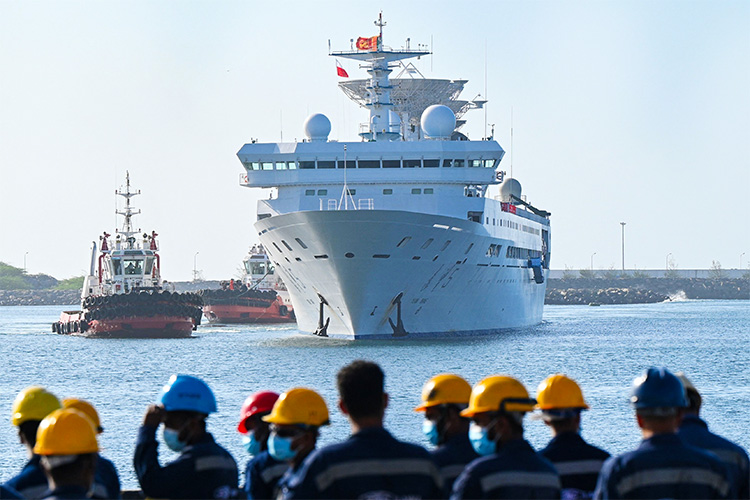
 The continuing US attacks on China-Sri Lanka relations must be a matter that should receive serious attention from the government and the Opposition. The reference to Admiral Zheng He’s actions in 1410 by a publication issued by the US Indo-Pacific Command reveals the level of US desperation. At the same time, Sri Lanka cannot turn a blind eye to growing Western concerns, primarily fuelled by the US, and that of India.
The continuing US attacks on China-Sri Lanka relations must be a matter that should receive serious attention from the government and the Opposition. The reference to Admiral Zheng He’s actions in 1410 by a publication issued by the US Indo-Pacific Command reveals the level of US desperation. At the same time, Sri Lanka cannot turn a blind eye to growing Western concerns, primarily fuelled by the US, and that of India.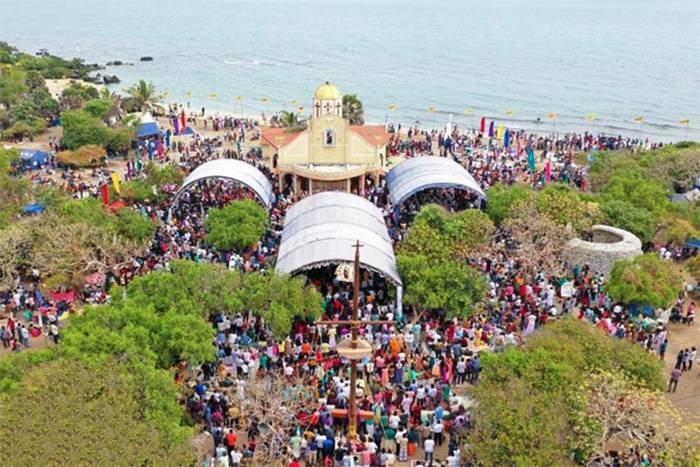
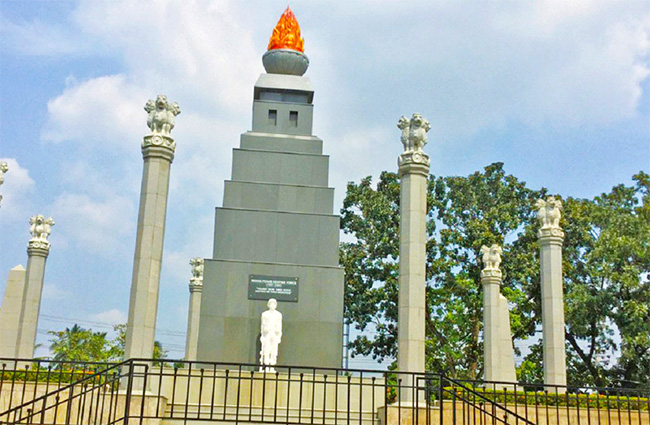
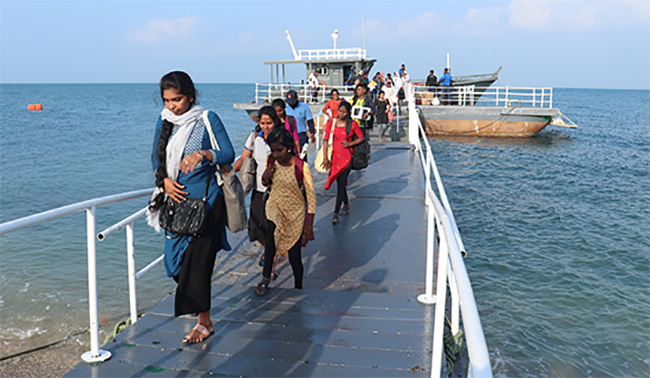
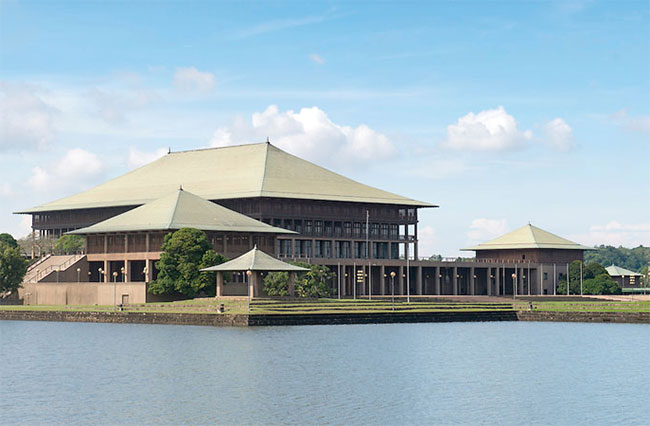
 The SC determination was contrary to what the Speaker announced in parliament that the court determined that none of the provisions in the Bill were inconsistent with the Constitution.
The SC determination was contrary to what the Speaker announced in parliament that the court determined that none of the provisions in the Bill were inconsistent with the Constitution.